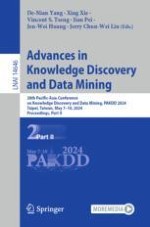2024 | OriginalPaper | Buchkapitel
RPH-PGD: Randomly Projected Hessian for Perturbed Gradient Descent
verfasst von : Chi-Chang Li, Jay Huang, Wing-Kai Hon, Che-Rung Lee
Erschienen in: Advances in Knowledge Discovery and Data Mining
Verlag: Springer Nature Singapore
Aktivieren Sie unsere intelligente Suche, um passende Fachinhalte oder Patente zu finden.
Wählen Sie Textabschnitte aus um mit Künstlicher Intelligenz passenden Patente zu finden. powered by
Markieren Sie Textabschnitte, um KI-gestützt weitere passende Inhalte zu finden. powered by
